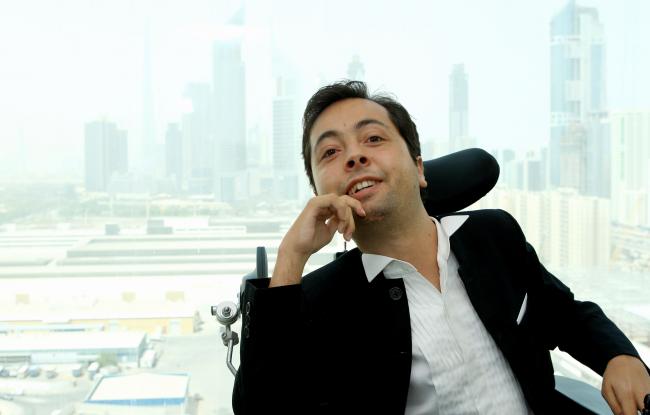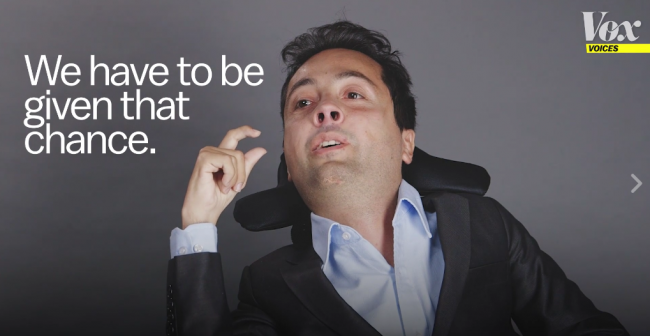Heads of state, ambassadors, and city leaders gathered this weekend in Quito, Ecuador, part of a group of an estimated 50,000 delegates taking part in discussions centered on the future direction of the world’s cities. The Habitat III Conference, organized by the United Nations, is a global summit that has occurred only twice before, separated by two 20-year intervals. In 1996, the last year it was held, the world’s urban population was 45.1 percent; this year, that number has increased to 54.5 percent. And while cities occupy only two percent of the earth’s total land area, a staggering 70 percent of the world’s economy is concentrated in cities, and cities are responsible for 60 percent of the world’s energy consumption and 70 percent of global waste. This cumulated global output of cities makes it clear that the impact of cities extends far beyond their metropolitan borders, and what happens during Habitat III, the largest gathering of international stakeholders who are actively shaping the future of urbanization, will have far-reaching implications.
Dr. Victor Pineda, a Senior Fellow at the Haas Institute for a Fair and Inclusive Society, will be taking an active role in the Habitat III convenings, from participating in a high-level forum for the inclusion of people with disabilities in urban accessibility, to organizing a major human-centered art project as part of the conference activities.
Dr. Victor Pineda, a Senior Fellow at the Haas Institute for a Fair and Inclusive Society, will be taking an active role in the Habitat III convenings, from participating in a high-level forum for the inclusion of people with disabilities in urban accessibility, to organizing a major human-centered art project as part of the conference activities.
Pineda, who has taught a course on disability inclusive urban planning in the Department of City and Regional Planning at UC Berkeley, has long been a leading international disability justice advocate. Working across a multitude of organizations and efforts, including being named by President Obama last year as a member of the US Federal Access Board, Pineda’s work and scholarship is situated at the nexus of technology, innovative urban planning, and full inclusion in society for people with disabilities. Pineda’s approach stems from his belief that innovative planning needs to not happen solely from a design or technology perspective, but from an inclusion-centered, human-oriented approach, in order that all members of a healthy community can have access to the opportunity to thrive.
Pineda’s approach stems from his belief that innovative planning needs to not happen solely from a design or technology perspective, but from an inclusion-centered, human-oriented approach, in order that all members of a healthy community can have access to the opportunity to thrive.
In Quito, a key focus of Pineda’s will be to make sure that the Habitat III Conference’s final agreement, the New Urban Agenda, will reflect inclusion of accessibility and other issues that directly impact people with disabilities. Even as people with disabilities have made great strides in setting policy agendas, and have been more widely visible in cultural and political spheres, as late as May of this year the New Urban Agenda still did not include persons with disabilities as one of the major groups of stakeholders included in its drafting. As part of a larger global network of activists, Pineda has been actively involved in institutional organizing and pressure on behalf of more fuller disability access, which led to the inclusion in July of persons with disabilities as an official major stakeholder group of Habitat III.
A prominent focus of Pineda’s recent work has been around “smart cities.” As more and more services move to digital platforms, it’s important that technology is accessible. If basic rights and services are not accessible, that could potentially impact and exclude millions of citizens. New technologies, such as wearables, motion recognition, and artificial intelligence, also need to be designed for full access, as they offer great potential for persons with disabilities and can help people remain productive as they age. On this front, Pineda has been working with Microsoft and the Global Initiative for Inclusive ICTs (G3ict) on exploring smart city technology that leverages accessible information technology.
A prominent focus of Pineda’s recent work has been around “smart cities.” As more and more services move to digital platforms, it’s important that technology is accessible. If basic rights and services are not accessible, that could potentially impact and exclude millions of citizens.
Pineda has also been busy preparing for a major human-powered art project that will take place in Quito alongside the conference. As part of his position with an international stakeholder network of people working on accessible urban development (DIAUD), Pineda and others collaborated with the artist and activist John Quigley to design and produce a live art project. Hundreds of people, with and without disabilities, and of all ages, have been invited to gather on Tuesday to spell out the word “INCLUSION” with their bodies, with the hope that the result will be a defining image of Habitat III. The event, supported by the Ford Foundation, will take place in front of the National Museum of Quito.
Much of what can be found in the great human mashup of cities is also emblematic of the disability community, as Pineda told Vox in a recent interview. "We represent every constituency group. We are old, we are young, we are black, white, Hispanic, Asian, we are men, women, transgender. We are part of every community, and what we want is equal opportunity to contribute our talents."
Inclusive and innovative urban development can have a positive impact on national and local economies, help close the inequality gap, and lead the fight against climate change. But well-designed, inclusive cities also serve as models of what healthy, connected communities have to offer, increasing residents’ sense of belonging and connection, critical in a time where social isolation has been shown to be as detrimental as smoking. City planning that includes all humans, not just the able-bodied or affluent, must be baked into urban development, so that our most populated spaces offer a thriving, sustainable vision for our increasingly urbanized and connected planet.
--
Dr. Victor Pineda is the President of World ENABLED, Chancellor’s Research Fellow, and an Adjunct Professor in the Department of City and Regional Planning at the University of California at Berkeley. He is a leading global expert on disability rights, policy, planning and design and has worked closely with the U.S. Department of the Treasury, World Bank, United Nations, UNESCO, UNICEF, and cabinet level officials in the UAE, Qatar, Venezuela, and Serbia among others to develop policies and programs that include persons with disabilities as equal stakeholders in development. Dr. Pineda is the recipient of a National Science Foundation (NSF) innovative research grant, a Fulbright-Hays Fellowship, the Thomas Jefferson Award, the Tom Clausen Fellowship for Business and Policy, and the Paul G. Hearne Award. Dr. Pineda holds a Ph.D. from the Luskin School for Public Affairs at the University of California at Los Angeles and a Master’s in City and Regional Planning, a B.A. in Political Economy, and a B.S. in Business Administration from the University of California at Berkeley.
---
More about Haas Institute for a Fair and Inclusive Society can be found here, including our work on disability studies led by renowned scholar Dr. Karen Nakamura. Find out more about the Inclusion art project here. Find out more about the High Level Meeting and Forum on Disability Inclusion and Accessible Urban Development during Habitat III here.
Media Contact:
Rachelle Galloway-Popotas



